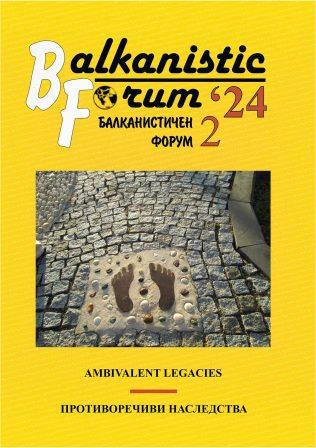Езиковото наследство на организираната престъпност през 90-те години на ХХ век в посткомунистическите държави
The Linguistic Legacy of Organized Crime in the 1990s in Post-Communist Countries
Author(s): Elena KrejčováSubject(s): Language and Literature Studies, Applied Linguistics, Sociolinguistics, Sociology of Literature
Published by: ЮГОЗАПАДЕН УНИВЕРСИТЕТ »НЕОФИТ РИЛСКИ«
Keywords: neologisms; neosemanticisms; organized crime; 1990s vocabulary; lexical connotation
Summary/Abstract: After the fall of communist regimes, post-communist societies experienced a period of intense political change. New political parties and structures emerged that created both new programs and concepts as well as terminology. The vocabulary of any language is dynamic and constantly evolving in line with changes in society. As for the language of the 1990s in post-communist societies, we can point out that the language is a mirror of the life around us and its economic, political and social upheavals. The new realities are reflected in the lexical system of the language with a special evaluation embedded in the semantics or connotation of the described vocabulary. Those words are actually key concepts of the "new life" and everyday life of the transition and can become guidelines in the study of this modern period. The text presents part of the language corpus created by us of the words from the 1990s. The object of our research are the lexemes related to organized crime. Vocabulary related to that semantic field contains a large amount of expressiveness or change in the original semantics.
Journal: Балканистичен Форум
- Issue Year: 33/2024
- Issue No: 2
- Page Range: 313-323
- Page Count: 11
- Language: Bulgarian
- Content File-PDF

